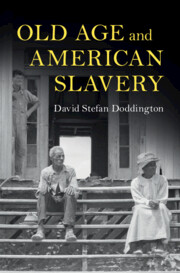2018 School Spending Survey Report
Old Age and American Slavery
COPY ISBN
VERDICT This engaging and vast range of historiography exposes fresh layers of the complex, conditional, and contested interactions that differentiated the lived experiences of enslavers vs. the enslaved. An essential read for all students of the history of enslavement in the United States.
RELATED
ALREADY A SUBSCRIBER? LOG IN
We are currently offering this content for free. Sign up now to activate your personal profile, where you can save articles for future viewing




Comment Policy:
Comment should not be empty !!!